Contents
Introduction
Dan Ariely is a prominent behavioral economist and professor known for his extensive research on human irrationality, decision-making, and the psychology of money. As a leading figure in the field of behavioral economics, Ariely has explored how cognitive biases and emotional factors influence economic behavior and personal decisions. His engaging books, such as Predictably Irrational and The Upside of Irrationality, have made complex psychological concepts accessible to a broad audience, bridging the gap between academic research and everyday life. Ariely’s work has significantly impacted both academic circles and public understanding of behavioral economics, shaping policies and business strategies worldwide.

This article delves into Ariely’s life, major theories, and the profound influence of his work on modern psychology, economics, and societal behaviors.
Early Life and Education
Dan Ariely was born on April 29, 1967, in New York City, USA, to Israeli immigrant parents. Growing up in a household that valued education and intellectual curiosity, Ariely developed an early interest in understanding human behavior and decision-making. His academic journey took him from Israel to the United States, where he pursued higher education in psychology and business, laying the foundation for his future career in behavioral economics.
Image Source: Meltingpot Forum

Educational Journey
| Aspect | Details |
|---|---|
| Undergraduate Education | Ariely earned his Bachelor of Arts degree in psychology from Tel Aviv University in 1988. His undergraduate studies focused on cognitive psychology and behavioral studies, sparking his interest in how people make decisions. |
| Graduate Studies | He pursued his Ph.D. in Cognitive Psychology at the University of North Carolina at Chapel Hill, completing his dissertation on problem-solving and decision-making under uncertainty. During his doctoral studies, Ariely was mentored by renowned psychologists, which significantly influenced his research trajectory. |
| Postdoctoral Training | After obtaining his Ph.D., Ariely conducted postdoctoral research at the Hebrew University of Jerusalem, where he delved deeper into the intersection of psychology and economics. His postdoctoral work focused on exploring the cognitive and emotional factors that drive economic behavior, further solidifying his expertise in behavioral economics. |
Influences and Early Career
| Aspect | Details |
|---|---|
| Amos Tversky | Ariely was profoundly influenced by the work of Amos Tversky, whose research on cognitive biases and heuristics laid the groundwork for behavioral economics. Tversky’s collaboration with Daniel Kahneman inspired Ariely to explore how irrational behaviors impact economic decisions. |
| Richard Thaler | The pioneering work of Richard Thaler in behavioral economics also shaped Ariely’s approach to studying human decision-making. Thaler’s insights into nudging and behavioral interventions provided a framework for Ariely’s own research on improving decision-making processes. |
| Cognitive Psychology | Ariely’s background in cognitive psychology equipped him with the tools to investigate how mental processes influence economic behavior. This interdisciplinary approach enabled him to bridge the gap between psychology and economics effectively. |
| Entrepreneurial Ventures | Early in his career, Ariely engaged in entrepreneurial activities, founding several startups that applied behavioral economics principles to real-world problems. These ventures provided practical insights that informed his academic research and theoretical developments. |
Major Theories and Work
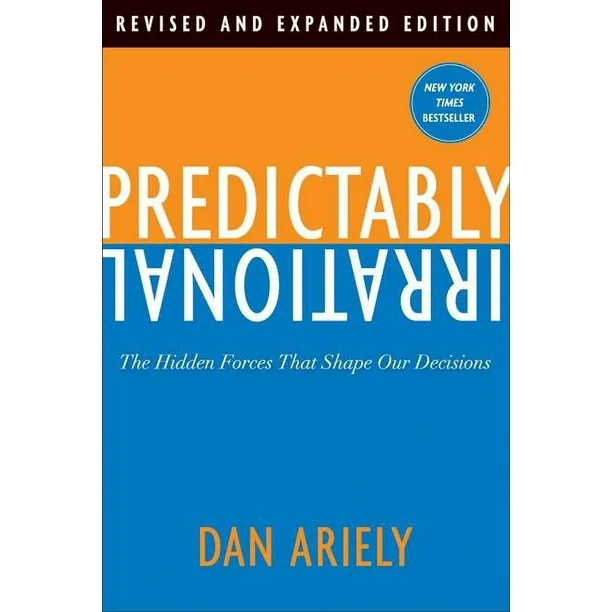
Predictably Irrational
Dan Ariely’s seminal work, Predictably Irrational, explores the hidden forces that shape our decisions. This theory posits that human behavior is systematically irrational in predictable ways, deviating from traditional economic models that assume rational decision-making. Key elements of this theory include:
- Systematic Biases: Ariely identifies various cognitive biases, such as the anchoring effect, where initial information disproportionately influences subsequent judgments, leading to predictable irrational behavior.
- Relativity and Comparison: The theory emphasizes that people evaluate options relative to each other rather than in absolute terms, causing irrational choices based on comparative contexts.
- Emotional Influence: Ariely highlights how emotions and irrational thinking processes drive decision-making, often leading to choices that contradict logical reasoning and self-interest.
Image Source: Walmart Business
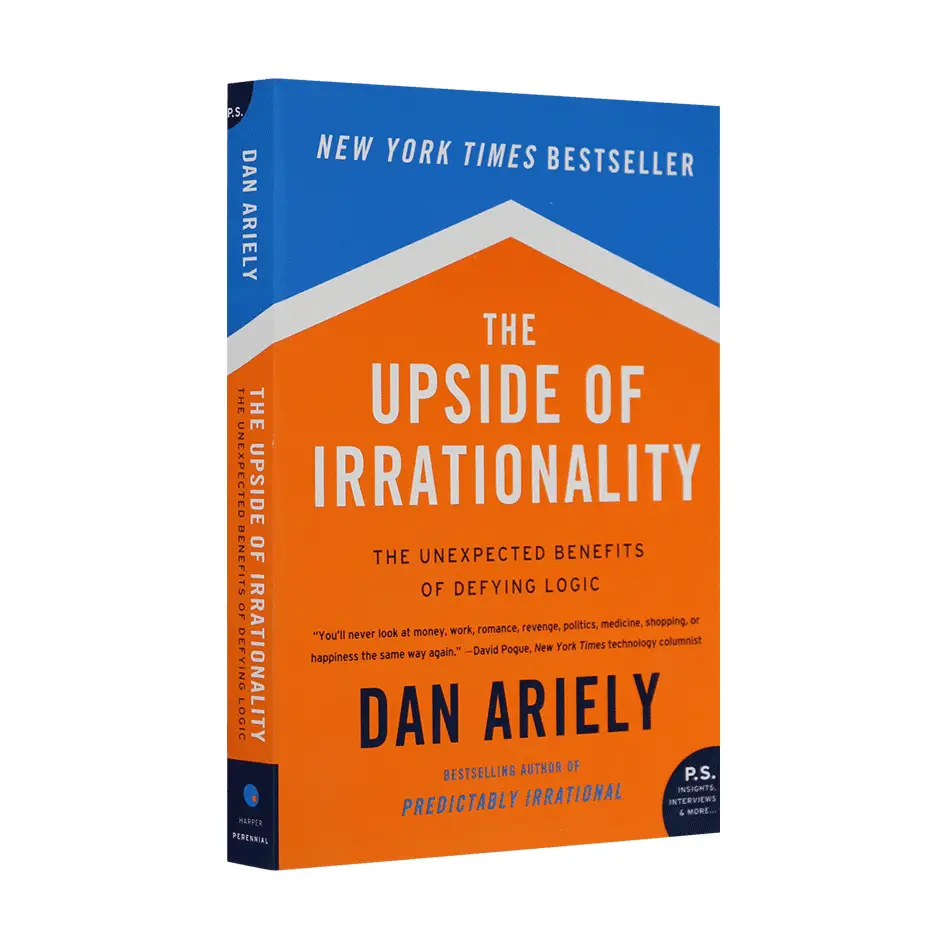
The Upside of Irrationality
In The Upside of Irrationality, Ariely extends his exploration of irrational behavior, focusing on how irrationality can sometimes lead to positive outcomes. Key aspects include:
- Long-Term Impact of Decisions: Ariely examines how short-term irrational decisions can have long-term benefits, such as investments in relationships and personal growth.
- Motivation and Productivity: The book explores how intrinsic and extrinsic motivations interact, revealing that sometimes irrational incentives can enhance creativity and productivity.
- Emotional Rewards: Ariely discusses how emotional satisfaction, rather than rational gain, often drives individuals to pursue goals that lead to meaningful and fulfilling lives.
Image Source: Meghan Maven
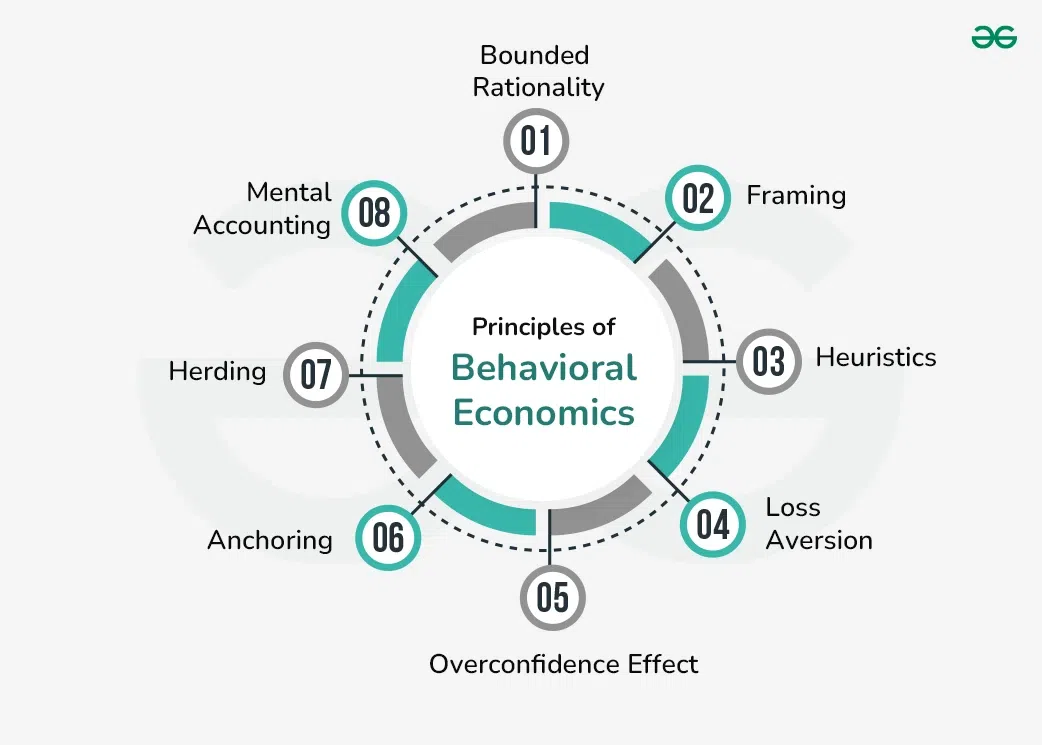
Behavioral Economics and Decision-Making
Ariely’s research in behavioral economics has significantly advanced the understanding of how psychological factors influence economic decisions. Key contributions include:
- Nudging: Building on Richard Thaler’s work, Ariely has explored how subtle changes in the presentation of choices can “nudge” individuals toward better decision-making without restricting their freedom of choice.
- Price Perception: Ariely investigates how consumers perceive and respond to pricing strategies, demonstrating that factors like context, framing, and perceived fairness play crucial roles in purchasing decisions.
- Intertemporal Choice: His work on intertemporal choice examines how individuals make decisions involving trade-offs between immediate and delayed rewards, highlighting the inconsistencies in self-control and future planning.
Image Source: GeeksforGeeks
Famous Books and Publications
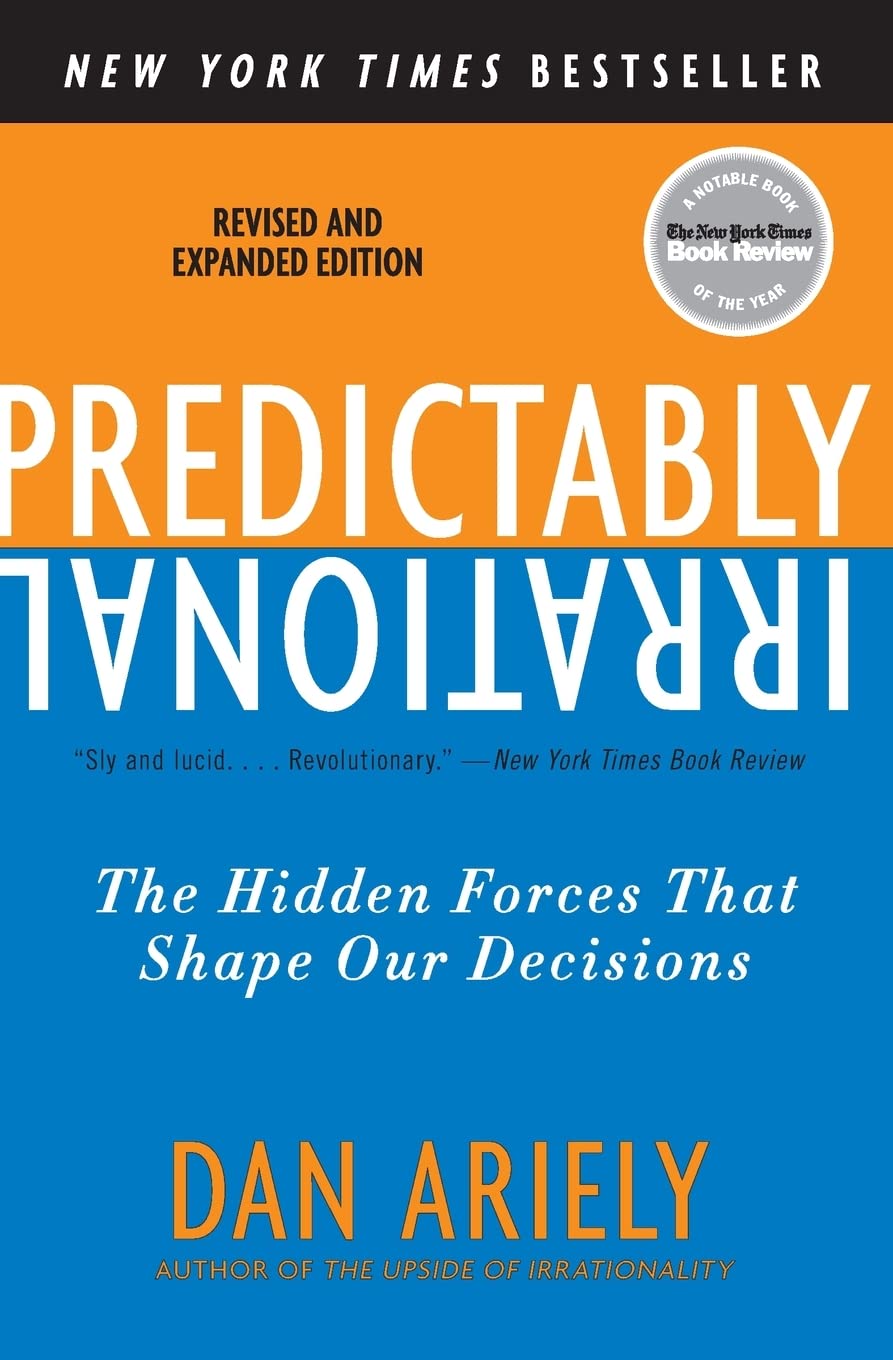
Predictably Irrational, Revised and Expanded Edition: The Hidden Forces That Shape Our Decisions
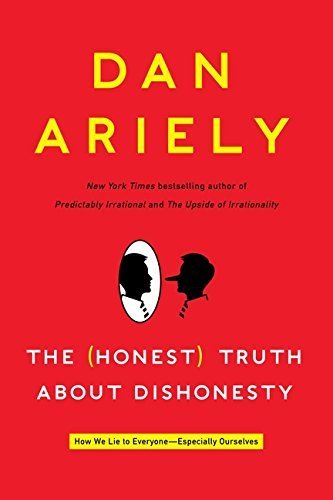
The Honest Truth About Dishonesty: How We Lie to Everyone Especially Ourselves
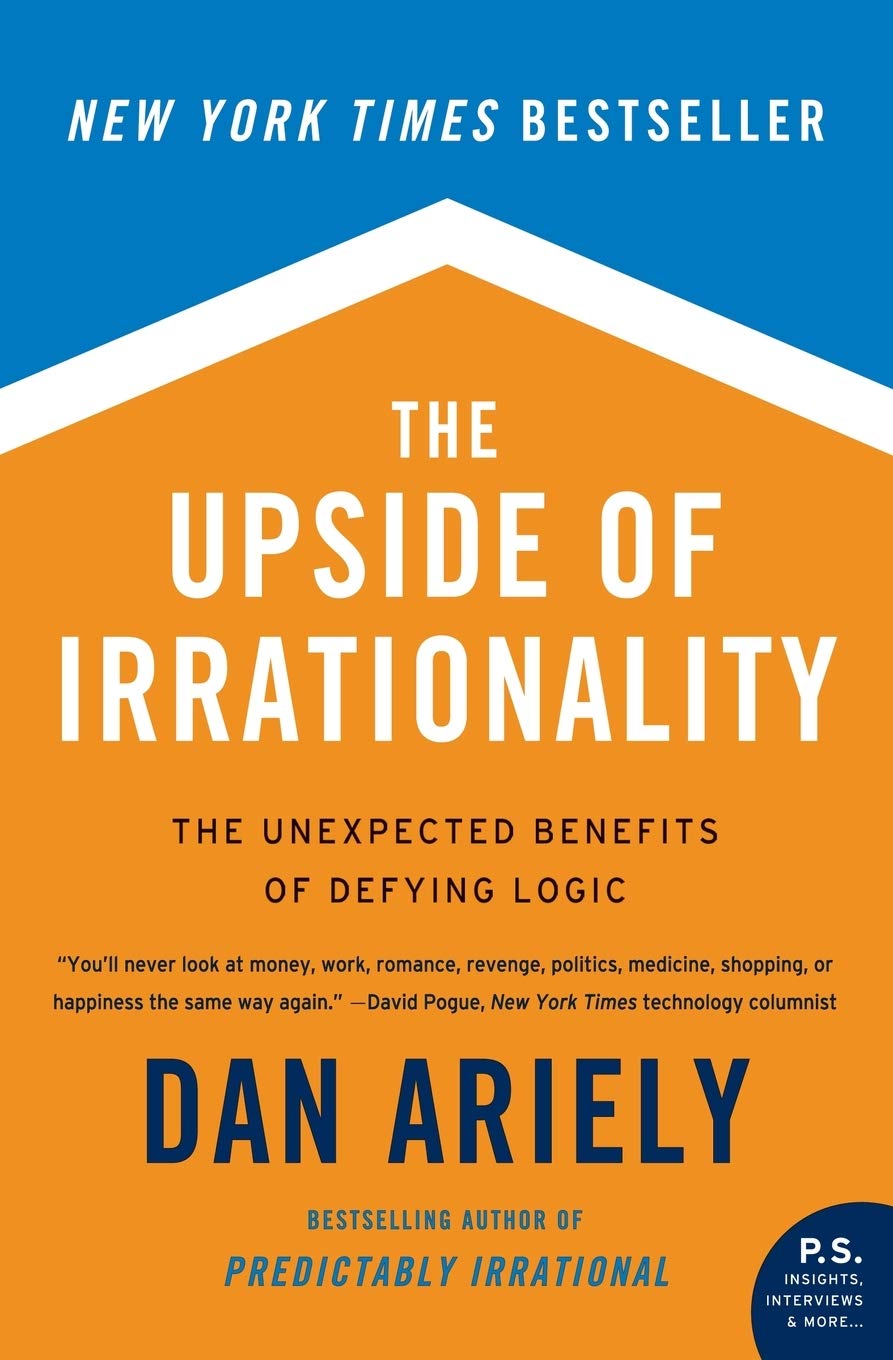
The Upside of Irrationality: The Unexpected Benefits of Defying Logic
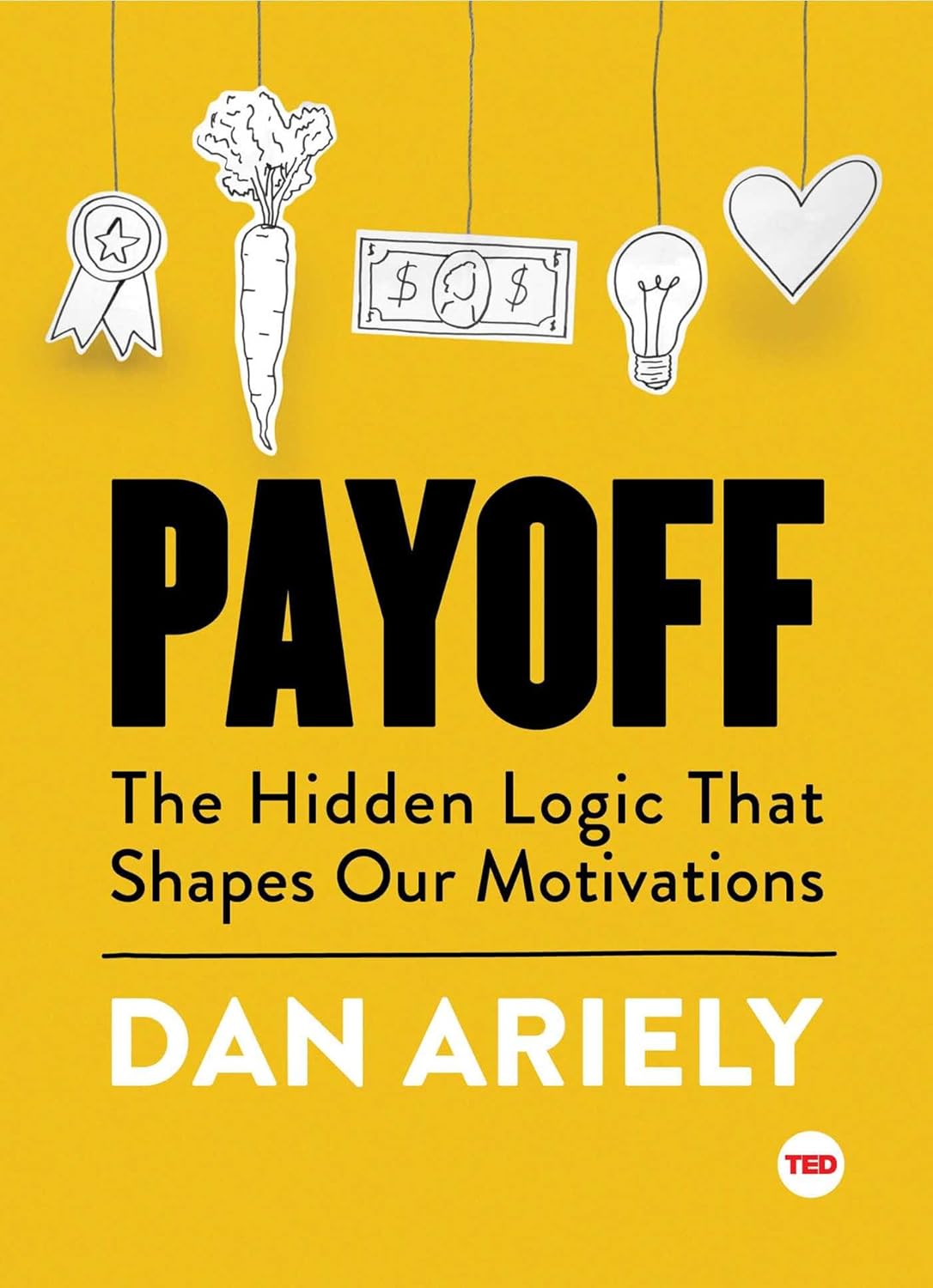
Payoff: The Hidden Logic That Shapes Our Motivations
Influence on Contemporary and Future Psychological Research
Dan Ariely’s contributions continue to shape the landscape of psychological research, particularly in the fields of behavioral economics and decision-making. His work has inspired numerous studies and applications that delve deeper into understanding and mitigating human irrationality.
- Advancements in Behavioral Interventions: Researchers are building on Ariely’s theories to design effective behavioral interventions aimed at improving decision-making in health, finance, and education. His pioneering work on nudging has led to innovative strategies that promote positive behavior change. These advancements are crucial for addressing real-world challenges and enhancing individual well-being.
- Interdisciplinary Research: Ariely’s integration of psychology, economics, and neuroscience has fostered collaboration across disciplines. Future studies are expected to delve deeper into the intersections of these fields, providing a more holistic view of human behavior. This interdisciplinary approach is vital for developing comprehensive theories that account for the complexity of decision-making processes.
- Technological Applications: As big data and artificial intelligence become increasingly prevalent, Ariely’s insights are being harnessed to create algorithms that predict and influence consumer behavior. This fusion of behavioral science and technology aims to enhance user experiences by delivering personalized content and recommendations. Such applications could revolutionize marketing strategies and consumer engagement.
- Public Policy and Ethics: Ariely’s research prompts important discussions around the ethical implications of behavioral interventions in policy-making and business. Future research may focus on how to balance effective behavioral strategies with ethical standards, ensuring that efforts to influence behavior respect individual autonomy. This emphasis on fairness is essential for building trust in public and private sectors.
Psychologists Influenced by Dan Ariely
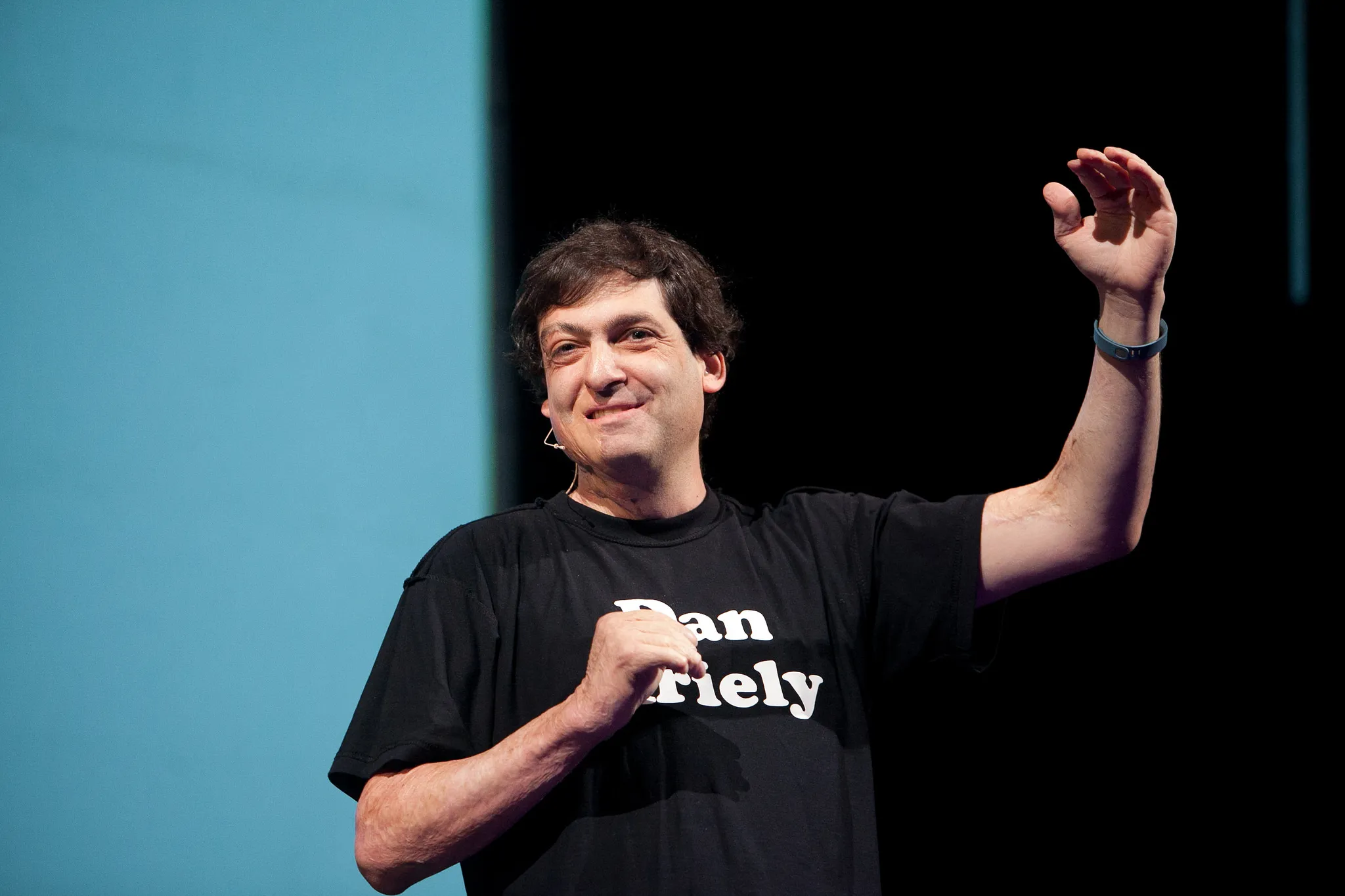
Ariely’s Collaborators and Students: Many of Ariely’s students and collaborators have continued his legacy by expanding research on behavioral economics and decision-making. Notable figures include:
- Ayelet Fishbach: A professor at the University of Chicago Booth School of Business, Fishbach has conducted extensive research on motivation and goal-setting. Her work builds upon Ariely’s findings on decision-making and incentives, exploring how individuals can effectively align their goals with their motivations. Fishbach’s research contributes to a deeper understanding of how psychological factors influence the achievement of personal and professional objectives.
- Ben Homans: A professor at Duke University, Homans has delved into behavioral decision theory and economic behavior, drawing inspiration from Ariely’s interdisciplinary approach. His research examines how psychological insights can be integrated into economic models to better understand decision-making processes. Homans’s work highlights the importance of considering human behavior in economic contexts.
- Bengt N. Malmberg: A professor at the University of British Columbia, Malmberg focuses on social norms and cooperation, inspired by Ariely’s studies on irrational behaviors. His research investigates how these behaviors shape economic and social interactions, emphasizing the role of social influences in decision-making. Malmberg’s contributions further the understanding of cooperation in economic settings.
- Nobel Laureates and Leading Economists: Ariely’s influence extends to prominent economists, including Richard Thaler, who won the Nobel Prize in Economic Sciences for his work in behavioral economics. Thaler’s research has been significantly shaped by Ariely’s findings, particularly in understanding how irrational behaviors affect economic decisions. This connection illustrates the profound impact Ariely has had on the field of economics.
Impact on Psychology
- Influence on Modern Thought: Dan Ariely’s exploration of human irrationality has fundamentally altered the understanding of decision-making processes in psychology and economics. By demonstrating that irrational behaviors are systematic and predictable, he has challenged the traditional economic assumption of rational agents. This shift has paved the way for more realistic models of human behavior that incorporate cognitive biases and emotional factors, enriching the fields of behavioral economics and psychology.
- Legacy and Recognition: Ariely has received numerous accolades for his contributions to behavioral economics and psychology, including the Marshall Sklare Award, which recognizes outstanding contributions to the field. He was also honored with the Mind & Life Institute Award for his efforts to bridge science and everyday life through engaging research. Additionally, he received the Duke University Distinguished Faculty Award, acknowledging his excellence in teaching and research. His legacy is evident in the widespread application of his theories across domains such as education, business, public policy, and personal development, making his work highly influential and enduring.
Conclusion
Dan Ariely’s pioneering research on human irrationality and decision-making has had a profound and lasting impact on the fields of psychology, economics, and beyond. By uncovering the hidden forces that drive our choices, Ariely has provided invaluable insights into improving decision-making processes in personal, professional, and societal contexts. His work continues to inspire researchers, policymakers, and individuals to rethink assumptions about human behavior, promoting a more nuanced and evidence-based understanding of the complexities of the human mind. Through his books, teachings, and public engagements, Ariely has cemented his role as a leading figure in behavioral economics, shaping the way we understand and navigate the intricacies of decision-making in an increasingly complex world.
Bibliography
- Ariely, D. (2008). Predictably Irrational: The Hidden Forces That Shape Our Decisions. HarperCollins.
- Ariely, D. (2010). The Upside of Irrationality: The Unexpected Benefits of Defying Logic at Work and at Home. HarperCollins.
- Ariely, D. (2012). The (Honest) Truth About Dishonesty: How We Lie to Everyone—Especially Ourselves. HarperCollins.
- Ariely, D., & Kreisler, J. (2014). Dollars and Sense: How We Misthink Money and How to Spend Smarter. HarperCollins.
- Ariely, D. (2016). Payoff: The Hidden Logic That Shapes Our Motivations. HarperCollins.
- Ariely, D., & Pychyl, T. A. (2016). The Procrastination Equation: How to Stop Putting Things Off and Start Getting Stuff Done. HarperCollins.
- Ariely, D. (2017). “The logic of deceit: Why we lie to ourselves and others.” Scientific American, 316(3), 58-63.
- Ariely, D. (2019). IRRATIONALITY: The Enemy Within. HarperCollins.
- Ariely, D. (2020). “How to Make Smarter Decisions.” Harvard Business Review, 98(4), 112-121.
- Ariely, D., Norton, M. I., & Mochon, D. (2012). “The IKEA effect: When labor leads to love.” Journal of Consumer Psychology, 22(3), 453-460.
